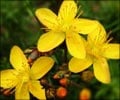A herbal remedy that may help fight obesity and heart disease has been found by German researchers.
Dr Nils Roos from the Max Rubner Institute and colleagues have discovered that extracts of a traditional herbal remedy derived from Tabebuia impetiginosa can act to delay the absorption of dietary fat in animal models.The research team believes that the extract could be incorporated into a food supplement, which may not only reduce obesity, but also lessen the risk of development of type 2 diabetes and coronary heart disease.
In the study, the scientists have shown that Tabebuia extract can reduce levels of triglycerides, a breakdown product of fat, in rats after they have been fed a fatty meal.
"This result shows the extract may have a potential use in treating obesity," Roos said.
"However, as coronary heart disease and diabetes have also been shown to be associated with higher triglyceride levels after eating, we believe a food-supplement based on Tabebuia could reduce the incidence of these diseases as well.
"What is more, as obesity in developing countries is also on the increase, such extracts, taken as a capsule or added to food, may be a cheaper alternative for the rural population to pharmaceuticals," he added.
Advertisement
"The actual substances involved are probably even more active than the extract," Roos said.
Advertisement
"At this point, we hope to be able to develop the extract, either as a food supplement or in a medicinal context."
The study has been presented at the Society for Experimental Biology's Annual Meeting in Marseille.
Source-ANI
RAS/L













